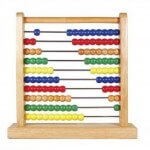 This may sound like a strange statement, “make sure your numbers add up in your management report”. However, the fastest way that a PMO can lose credibility, is by publishing reports with mathematical errors.
This may sound like a strange statement, “make sure your numbers add up in your management report”. However, the fastest way that a PMO can lose credibility, is by publishing reports with mathematical errors.
This is very frustrating as a small slip, taking your eye of the ball due to being busy and, a reputation built over many years can be lost, especially if your stakeholder is very unforgiving.
In Warren Buffet’s own words “It takes 20 years to build a reputation and five minutes to ruin it. If you think about that, you’ll do things differently”.
This is very sound advice, in the PMO there will be times when you will be up against extreme time pressures with senior management pushing for information. In these environments in can be very easy to cut corners and not perform the appropriate level of review to ensure the quality of the report.
However, given the consequence of publishing a sub standard report with errors, it is far better to delay the publication until you are confident of the level of quality.
The worst that can happen is you get shouted at for delivering slightly late – far better than losing the confidence of management and your reputation.
Trusting Spreadsheets?
This is the quick tip I want to share in this post. It is all to easy to simply trust the calculations in spreadsheets. There is no reason you shouldn’t, performing calculations is what spreadsheets and the underlying computer were designed for.
But……the popular spreadsheet programmes have become too clever and try to help you with your data. This means you can get some strange results.
A big one to look out for is ’rounding’.
It is very common to format numbers to go to 1 decimal place, especially when using large numbers representing millions. However, when you are summing the numbers across the row, there is a high chance that if you added the numbers printed on a page using a calculator, it will not equal the total.
Now you probably think, that is OK as it is only rounding. This is true. However, some people are very good with numbers and quickly will spot they don’t quite add up and then there trust level will start to drop and they will look for more.
You also will have those who are not supportive of the programme or playing political games who are looking for opportunities to undermine and derail your work (sad but true). They will drop in a comment during a senior meeting (making it out to be a joke) that the numbers don’t add up!
What to do?
- Don’t rely on the calculations in Excel. Cross check the printed numbers using a calculator to ensure they add up.
- Get someone else to conduct and independent check.
- Make notes on any rounding differences and then take the time to make sure that they add up visually on the printed page. It will avoid any potential problems (the notes mean you can change them back later).
- Don’t give into pressure to publish a report of numbers until you have performed the check and you are happy.






